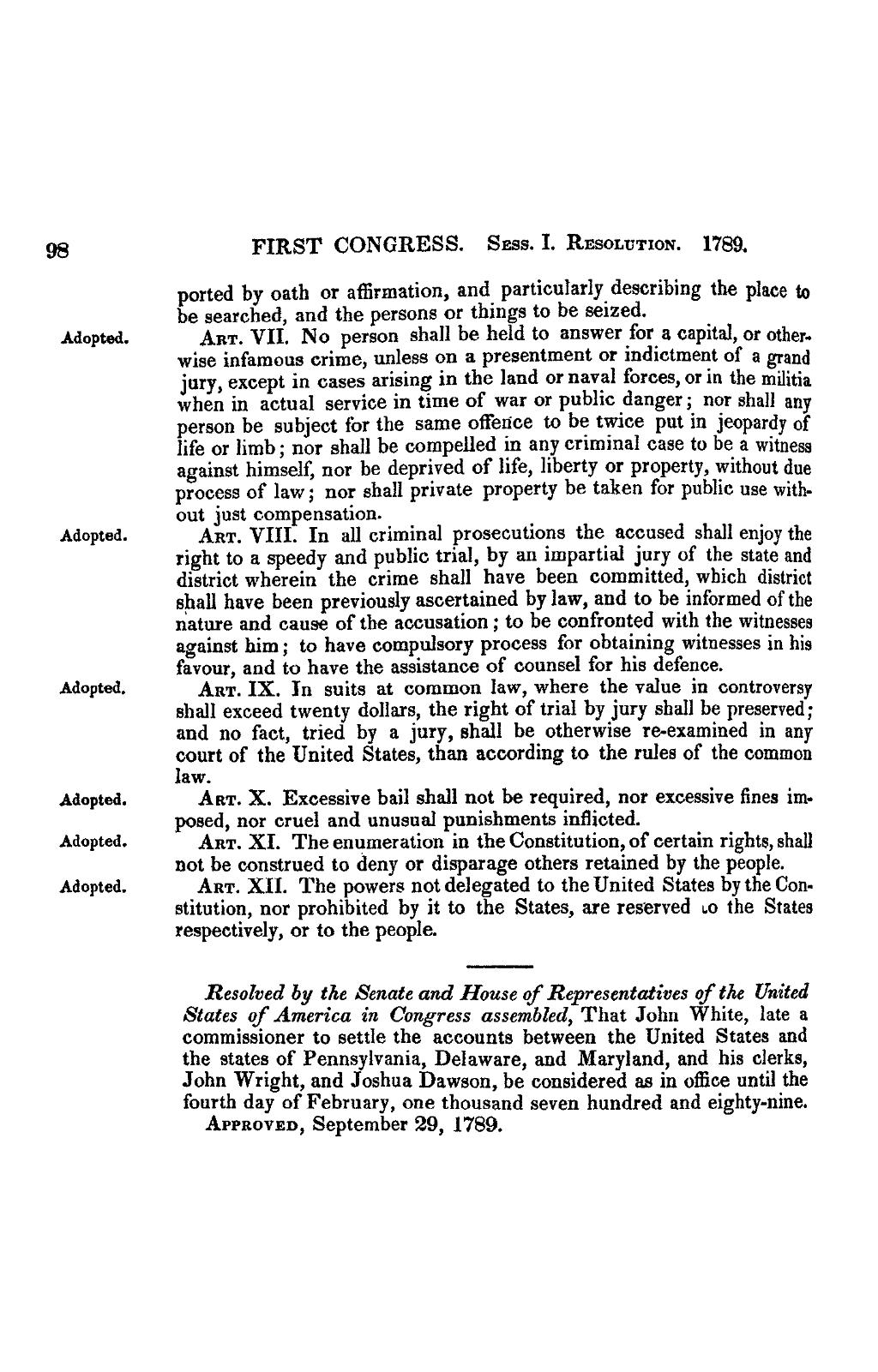supported by oath or affirmation, and particularly describing the place to be searched, and the persons or things to be seized.
Adopted.Art. VII. No person shall be held to answer for a capital, or otherwise infamous crime, unless on a presentment or indictment of a grand jury, except in cases arising in the land or naval forces, or in the militia when in actual service in time of war or public danger; nor shall any person be subject for the same offence to be twice put in jeopardy of life or limb; nor shall be compelled in any criminal case to be a witness against himself, nor be deprived of life, liberty or property, without due process of law; nor shall private property be taken for public use without just compensation.
Adopted.Art. VIII. In all criminal prosecutions the accused shall enjoy the right to a speedy and public trial, by an impartial jury of the state and district wherein the crime shall have been committed, which district shall have been previously ascertained by law, and to be informed of the nature and cause of the accusation; to be confronted with the witnesses against him; to have compulsory process for obtaining witnesses in his favour, and to have the assistance of counsel for his defence.
Adopted.Art. IX. In suits at common law, where the value in controversy shall exceed twenty dollars, the right of trial by jury shall be preserved; and no fact, tried by a jury, shall be otherwise re-examined in any court of the United States, than according to the rules of the common law.
Adopted.Art. X. Excessive bail shall not be required, nor excessive lines imposed, nor cruel and unusual punishments inflicted.
Adopted.Art. XI. The enumeration in the Constitution, of certain rights, shall not be construed to deny or disparage others retained by the people.
Adopted.Art. XII. The powers not delegated to the United States by the Constitution, nor prohibited by it to the States, are reserved to the States respectively, or to the people.
Resolved by the Senate and House of Representatives of the United States of America in Congress assembled, That John White, late a commissioner to settle the accounts between the United States and the states of Pennsylvania, Delaware, and Maryland, and his clerks, John Wright, and Joshua Dawson, be considered as in office until the fourth day of February, one thousand seven hundred and eighty-nine.
Approved, September 29, 1789.
